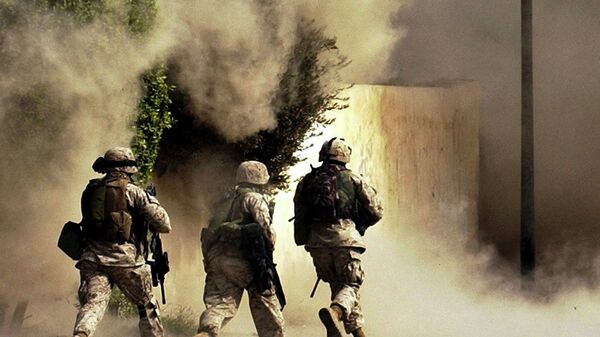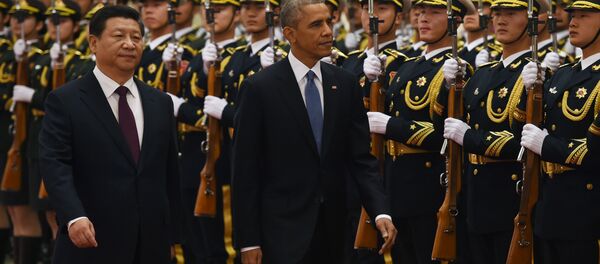Twenty five years ago, on September 11, 1990 then US president George H.W. Bush declared the United States the "sole superpower"; however, times have indeed changed for Washington since then, American-German economic researcher and historian F. William Engdahl emphasizes.
According to the historian, the most irrefutable evidence of Washington's loss of influence in the Middle East is Barack Obama's reaction to Russia's recent activity in the region aimed at halting the Syrian crisis.
America's top policy makers have rushed to blame Russia for what they have called exacerbating the situation in the Middle East. But why is Washington sweating bullets over Moscow's involvement in Syria?
"What has Washington freaked out is not the possibility that Russia will make the situation worse in Syria. After more than one year of destructive bombing by US and NATO planes, creating the present EU Syrian refugee crisis, the situation could hardly get much worse if Russia's actions manage to isolate ISIS [ISIL]. What scares Washington warhawks is the possibility that Russia's strategy could succeed in ending the ISIS [ISIL] reign of terror," the economic researcher stressed.
On September 15, 2015 the CSTO members unanimously denounced terrorism in Iraq and Syria and expressed their readiness to team up to fight extremism in the Middle East and Central Asia, particularly the Islamic State, Engdahl underscored.
If the CSTO deploys their forces in Syria under the UN auspices it would be far more effective than the US-led coalition forces, French intellectual Thierry Meyssan suggests.
"Unlike the Coalition, the CSTO maintains positive relations with the governments of Iraq and Syria, which enables it to envisage far greater efficiency… Technically speaking, the CSTO has the capacity to deploy up to 50,000 men in less than two weeks," Meyssan noted in his article for Voltairenet.org.
The Kremlin has repeatedly stressed that it would continue to support the democratically elected government of Syria in its battle against terrorism.
Furthermore, it seems that Jerusalem, Washington's longstanding ally, has also lent a sympathetic ear to Vladimir Putin's offer to find an ultimate solution to the current Middle Eastern crisis.
"This is a qualitatively new situation since the war began some four years ago, and an ideal time for the Russian combined increased support for the Syrian National Army and the legitimate government of Assad and to make a major new international diplomatic offensive to end the fighting," the historian suggested, adding that this is exactly what is eating Washington's war planners.
While Russia is gaining ground in the Middle East due to its diplomatic peace strategy, Washington's "strategy of wars everywhere" is facing a decline.
"If Russia is able now to forge a genuine, honest coalition of nations to isolate and destroy the Washington-created Frankenstein monster called ISIS [ISIL] or IS, and to allow Syrians to settle their problems with the duly-elected President, Bashar al-Assad in free elections without the US-financed NGOs of George Soros or the National Endowment for Democracy, the world will take a giant step away from war," Engdahl concluded.





